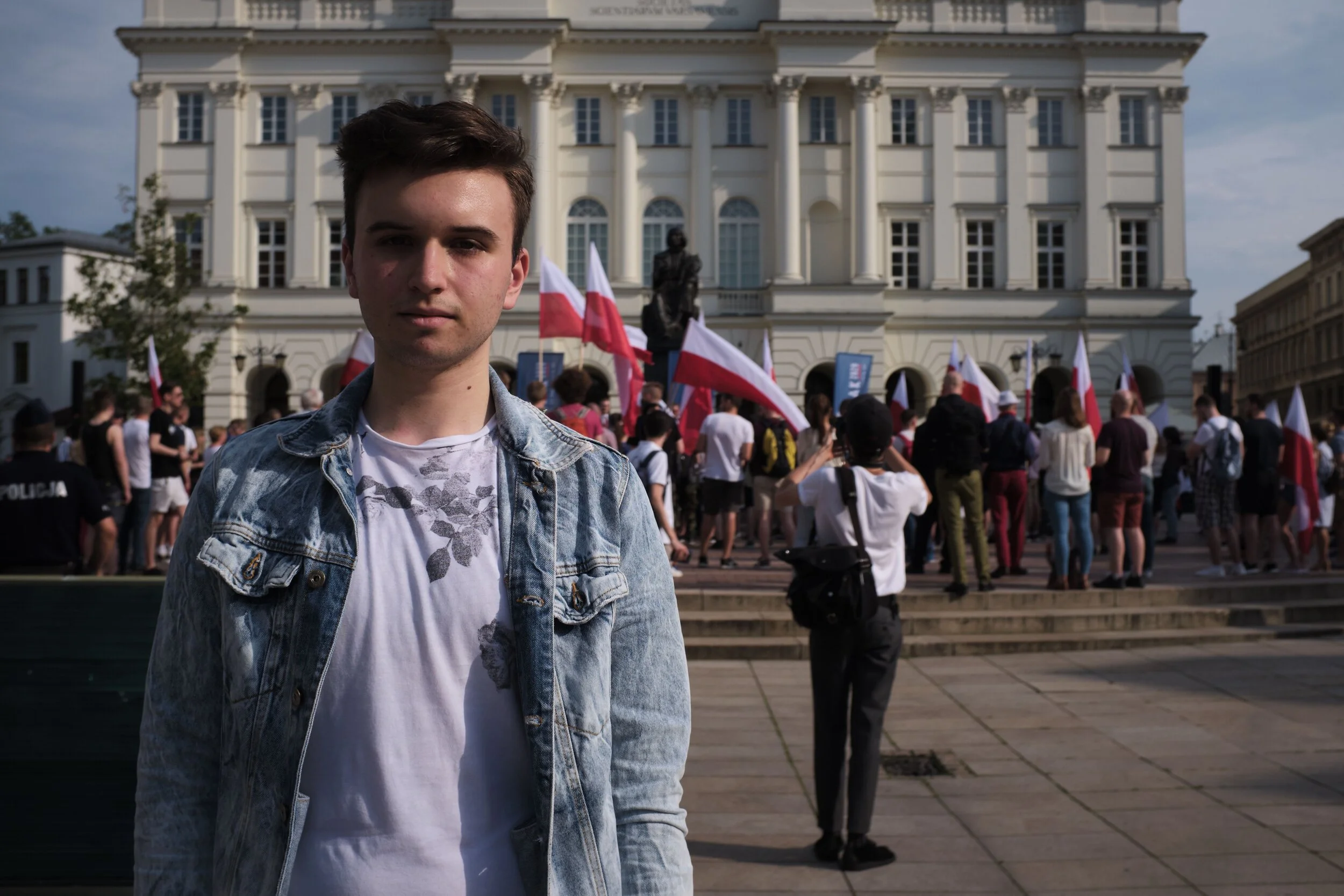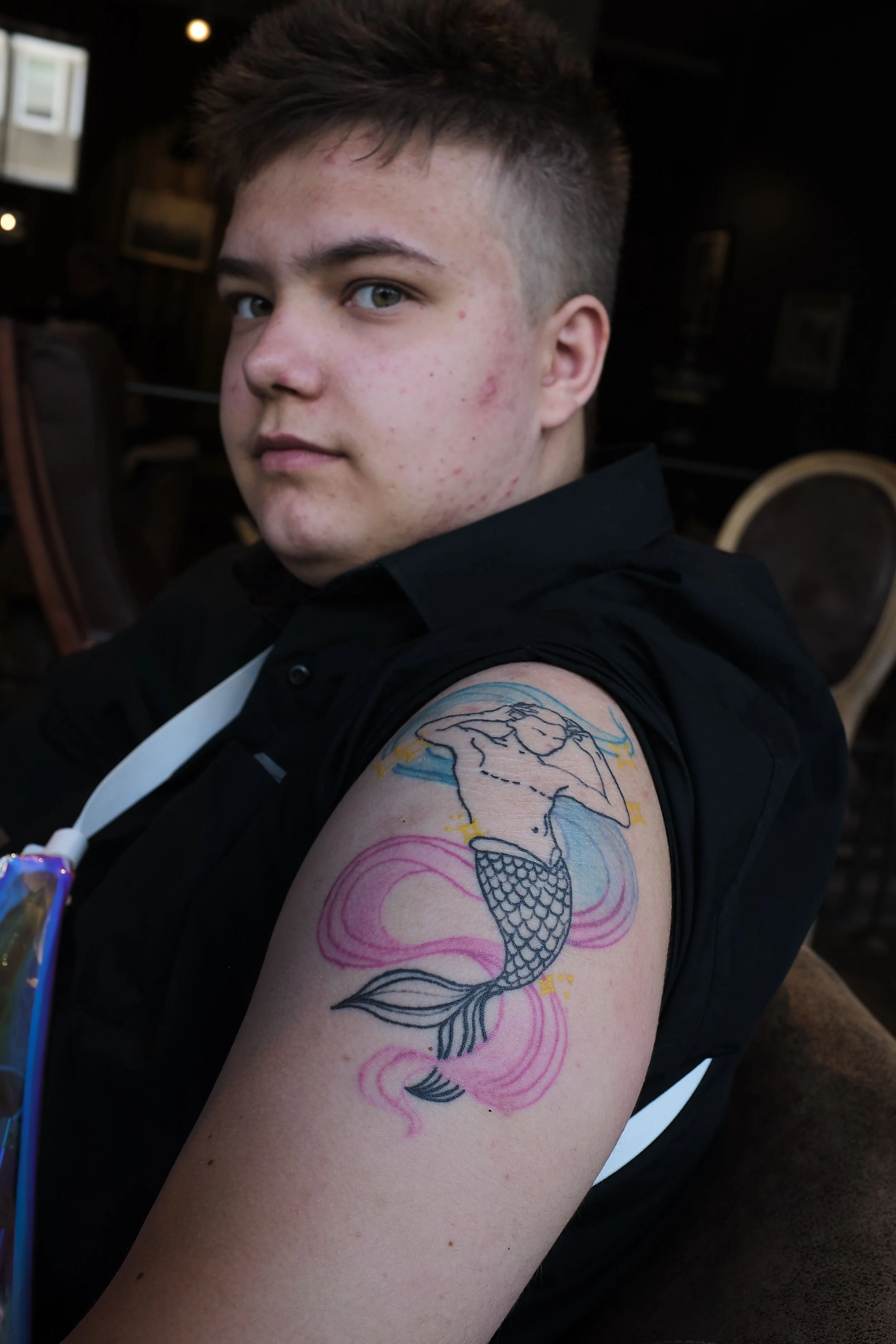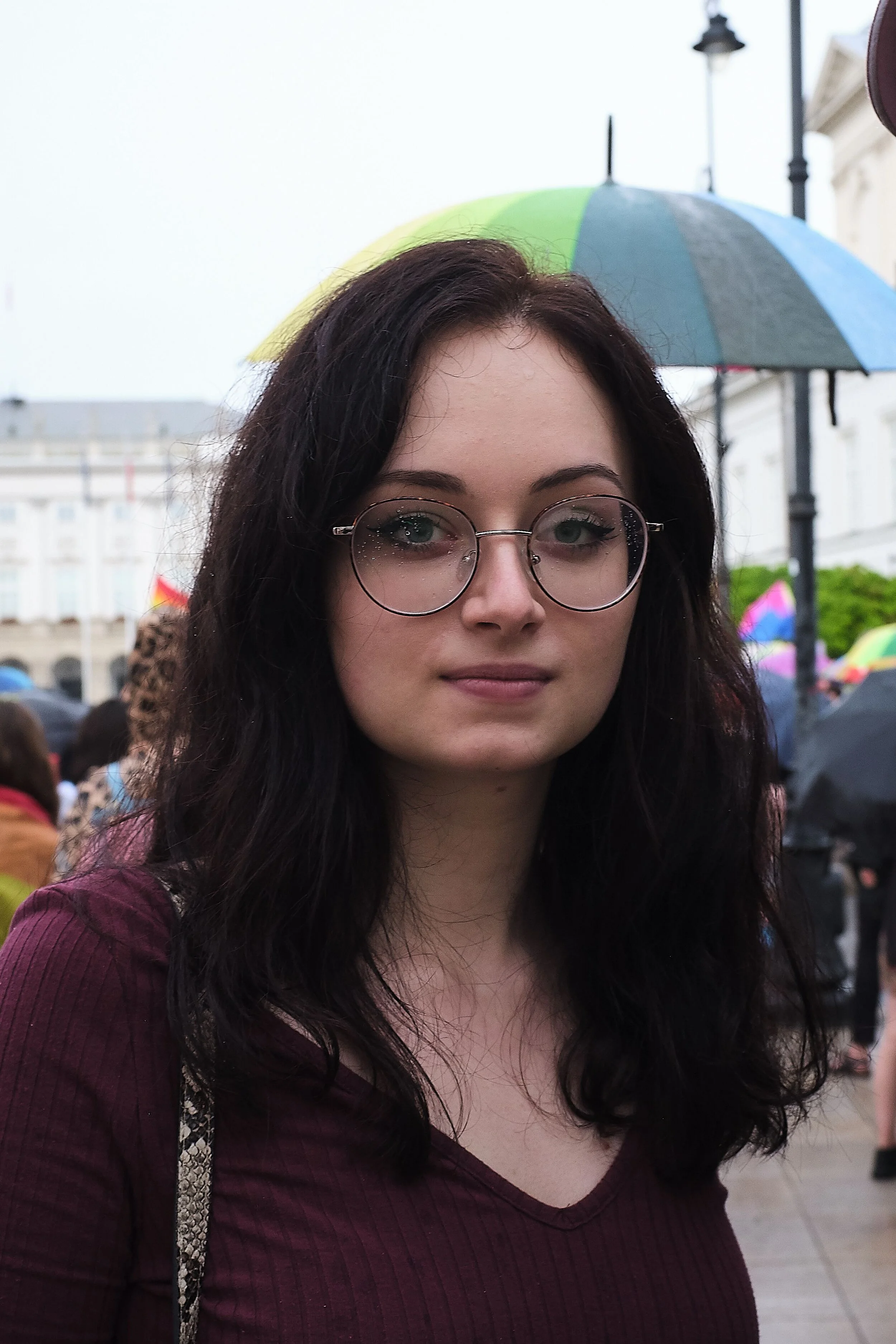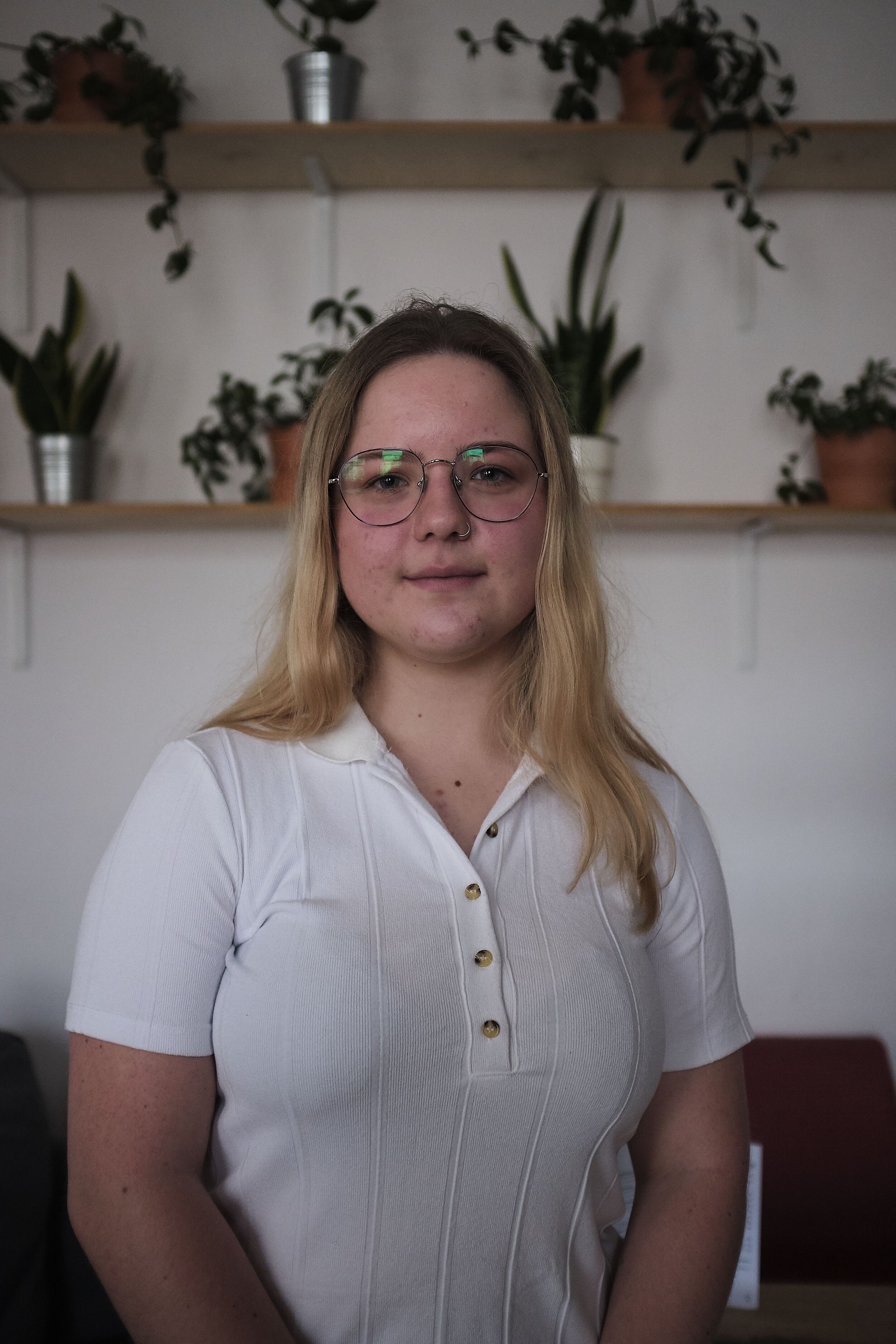LGBTQ rights, climate change and nationalism fire up Polish youth
Poland’s 18-year-olds are voting in their first presidential election this summer, amidst increasingly divisive rhetoric
By Marta Kasztelan
Mateusz Kepa, 18, Warsaw suburb of Ursynow
Photo / Marta Kasztelan
The pandemic has wreaked havoc on the life of 19-year old Leon Kulicki, a transgender highschooler from Poland’s capital city Warsaw. He couldn’t see his friends due to lockdown and, after falling out with his parents over his transition, moved out of his family home. Then, just as he was preparing for his postponed maths exam, something else happened that kept him up all night. It wasn’t the fear of failing calculus which caused his insomnia but the words of Polish president Andrzej Duda, saying: “LGBT is not people, it’s an ideology.”
Duda made his comments at a reelection rally in the southwestern town of Brzeg on 13 June. The incumbent, supported by the ruling conservative Law and Justice Party (PiS), is seeking reelection this Sunday, in the first round of a presidential vote that was deferred due the pandemic. He is competing against five major rivals, including the liberal mayor of Warsaw Rafal Trzaskowski of Civic Platform (PO) and the radical right-wing hardliner Krzysztof Bosak of Confederation, and is still leading in the polls. But his remarks have attracted widespread condemnation, instilling fear in and motivating many young Poles who, like Leon, will cast their first presidential ballot this weekend.
“I wasn’t able to sleep because I was so scared,” Leon says of the night of his final exam revision. “I am scared that a candidate who thinks I am human won’t win and I’ll be forced to leave the country if I want a normal life.” On his left arm the sleepy-eyed youth is sporting a colourful merman tattoo – a reference to the iconic mermaid symbol of Warsaw – with mastectomy lines. He will undergo the surgery himself in September after crowdfunding the necessary sum with the help of his friends.
Leon Kulicki, 19, Warsaw
Photo / Marta Kasztelan
Transitioning, Leon says, has been difficult. It saw him and his then-girlfriend kicked out of a cafe and spat on, among other things. “I am sad that I have to think about whether I look manly enough to hold someone’s hand,” he says. This is why he is going to vote for an opposition candidate, hoping “there will be more initiatives that educate people, because lack of knowledge is also the cause of this hate.” Sex education is practically non-existant in Poland, where PiS rose to power advocating for traditional Catholic values and vowing to protect the "traditional family”.
But the divisive rhetoric – alongside other concerns such as the overhaul of the justice system, attacks on reproductive rights and lack of climate change policies – seems to have infuriated some young voters. “I am seeing a kind of agitation,” says Warsaw University political scientist Anna Materska-Sosnowska. Their discontent was illustrated in a Facebook video called “youth’s wrath”, featuring millennials and Gen Z members urging their peers to vote on Sunday.
“I am scared that a candidate who thinks I am human won’t win and I’ll be forced to leave the country if I want a normal life.”
Outside Warsaw’s presidential palace on 21 June, Zuzanna Dziergwa is braving the rain and chanting “solidarity is our weapon!” amidst a crowd yielding rainbow flags and umbrellas. The 19-year old informatics student says the president’s comments angered her so much that she has travelled 270km from the southwestern town of Kepno to protest for the first time ever.
Growing up in a town of 14,000, the 19-year old informatics student says she witnessed how ugly LGBTQ discrimination can become in “closed communities” where “it’s not easy to be different.” “Two people in my closest entourage tried to commit suicide because of it,” she says. “I don’t like living in the most homophobic country in Europe.” According to human rights watchdog ILGA-Europe, Poland is the worst country for LGBTQ rights in the European Union.
Zuzanna Dziergwa, 19, Kepno
Photo / Marta Kasztelan
According to Zuzanna, older people in her town don’t understand why this issue is so important to young people. However, she believes the generations’ different struggles have many similarities. “In the past people protested for political and economic freedom,” she says, referring to the protests that rocked Poland in the late 80s and led to the fall of communism. “And today we are protesting for social freedom.” As an LGBTQ ally, she says she will vote for Robert Biedron, an openly gay politician running as a candidate for Poland’s left wing parties.
Climate Change
Tessa Rożek was 17 when she organised the first youth climate protest in her hometown of Lodz, a former manufacturing city in central Poland. Ridiculed by adults who, she says, claimed “that someone is paying us or that we have no clue because we are children,” the 18-year-old high school student can’t wait to cast her vote. “I always wanted to be able to influence decision-making,” she says. “I don’t want to leave it up to others.”
She believes it is up to her generation to address the climate crisis, given the failure of the political ruling class. “Will there be climate migration, overpopulation, are my children going to have enough water to drink?” These questions, she says, seem irrelevant to most adults – including her parents, who were also initially sceptical of her activism.
Tessa Rożek, 18, Lodz
Photo / Marta Kasztelan
But youth activism seems to be paying off. Prior to Poland’s climate protests, which kicked off in March 2019 as part of the global school strikes movement, politicians hardly mentioned the environment. This has now changed. Many presidential candidates have addressed climate change in their programmes and some are promising to wean the country off coal. Currently, coal-dependent Poland is the only EU country to out of the EU green new deal vowing to eliminate carbon emissions by 2050.
On Sunday’s first round, Tessa will vote for PO’s Trzaskowskiby – by no means a perfect candidate, she says, but the one she thinks is most likely to win with Duda. “I really don’t want PiS to win,” she adds.
Voting for an Alternative
Thirty-six hours before the ballot, a steady stream of mostly male teens and 20-somethings is pouring into a square in Warsaw’s historic city centre. The crowd, discernible from afar thanks to red and white flags flapping in the wind, is there to greet the radical-right Bosak. Among the spectators is 18-year old Mateusz Kepa, from the southern Warsaw suburb of Ursynow, who says he’s there to show his dissatisfaction with the status quo. “First and foremost, I want to vote for an alternative to the current duopoly of PiS and Civic Platform,” he says.
According to Materska-Sosnowska, Mateusz’s frustration is typical of many his generation, who often “lack confidence in the state.” “Bosak’s rise in popularity isn’t accidental,” she says. “He comes across well in debates and has a clear message.” And in times of crisis, she says, right-wing radicalism grows because “we need strong authorities, a strong leader.”
“I think this generation is more interested in politics, is more politically active, follows politics and votes more often.”
While members of Confederation propagate anti-immigrant, pro-life, anti-LGBTQ and anti-semitic world views, its pro-free market policies have attracted many young voters. This is important to Mateusz, who opposes PiS’s welfare programs. “PiS is constantly raising taxes and spends it on social programs,” he says. The ruling party’s flagship programs include 500+, which gives each family 500 zloty (€111.90) per month for any second and consecutive children until they reach 18.
Although his friends haven’t joined him today, Mateusz believes they will come through on Sunday. “I think this generation is more interested in politics, is more politically active, follows politics and votes more often,” he says.
Sunday’s ballot will prove if this really is the case. Young and first-time voters can sway the results one way or another because they affect how the electorate is distributed, says Materska-Sosnowska. “They are also the most volatile age group,” she concludes. “And this is always decisive. Their vote is an important vote.”




